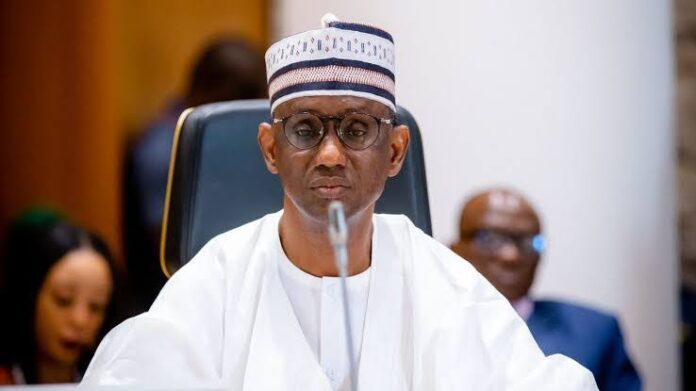Nigeria’s National Security Adviser, Mallam Nuhu Ribadu, has called for a new approach in the country’s fight against corruption—one that prioritizes prevention over punishment.
Speaking during the 9th Oba Sikiru Adetona Professorial Lecture held at Olabisi Onabanjo University in Ago Iwoye, Ogun State, Ribadu emphasized that lasting progress in combating corruption requires a shift in both systems and societal attitudes.
The lecture, themed “Corruption and National Security: Impacts and Consequences,” formed part of the 91st birthday celebration of Oba Sikiru Adetona, the Awujale and paramount traditional ruler of Ijebuland.
Represented by the Director General of the Department of State Services (DSS), Mr. Oluwatosin Ajayi, Ribadu described corruption as a major challenge that undermines Nigeria’s development and endangers its security infrastructure.
He highlighted the connection between corruption and insecurity, noting that the mismanagement of public funds and compromised law enforcement have eroded public confidence and weakened the nation’s ability to respond to threats.
“When military funds are misappropriated or procurement procedures bypassed, the result is a diminished national capacity to address security challenges,” he explained.
While acknowledging that punitive actions are still relevant, Ribadu stressed the need for proactive solutions to reduce opportunities for corruption.
“Rather than wait to punish corrupt acts after they occur, we need to develop systems that prevent such acts from happening in the first place,” he stated. “Creating structures that discourage corruption is more effective than relying on arrests and prosecutions alone.”
He further explained that corruption is widespread, not limited to public officials alone, and urged all citizens to play a role in the fight against it.
“Corruption exists within every layer of society,” Ribadu said. “It’s not only about those in government. Everyone must be committed to doing the right thing. Just as people shouldn’t take what isn’t theirs, they also shouldn’t offer what isn’t rightfully theirs.”
On matters of national security, he revealed that over 160,000 former Boko Haram members have surrendered, more than 300 commanders have been eliminated, and about 2,500 former insurgents have been rehabilitated and reintegrated into society.
Ribadu praised the Tinubu administration’s collaborative approach to security, noting that it works closely with traditional rulers, civil society, local communities, and private stakeholders.
He also used the occasion to honor Oba Sikiru Adetona, describing him as a principled and fearless leader who has long championed accountability and public service.
“At 90, Kabiyesi remains a shining example of leadership, wisdom, and dignity. His unwavering support for education and good governance is truly commendable,” Ribadu said.
Also speaking at the event, Professor Oluwatoyin Ashiru, Pro-Chancellor and Chairman of the Governing Council of OOU, hailed Oba Adetona as a distinguished royal figure and the institution’s most generous benefactor.

